President Bruce Bain brought in some heavyweight speakers for his monthly Narragansett Surfcasters meeting at the Narragansett Community Center. Peter Jenkins, owner of The Saltwater Edge in Middletown, spoke about the state of striper conservation and Dennis Zambrotta, noted and respected veteran surfcaster and author, shared some Block Island fishing stories. Peter has spent countless hours advocating for our government to protect stripers and Dennis has just released his latest book, “Surfcasting Around The Block II.” While one cast shadows on regulators’ motivations, the other told tall tales in moon shadows, fishing for big bass which were once abundant around the island. The irony is, both men want the same thing because under the watch of government regulators, our most beloved sportfish are overfished.
“Conservation equivalency sucks,” was Peter’s opener, which certainly seized the crowd’s attention. Navigating through a sea of Latin, species, acronyms and data points can be torturous, especially for those just want to understand the basic facts of fisheries regulations and offer some comment. “The biggest piece is what we call conservation equivalency. Conservation equivalence states that an individual state can have a separate set of regulations that are conservationally equivalent to the overall goal. But each state could be different.” CE, if you want to hang with the alphabet crew, is a painfully obvious game of switching coconut shells of landings, allowing one state to take more fish because another one took less. It’s like mining for lignite then bleating that its damage is offset because another country didn’t mine as much. Peter has done exceptional work to keep pressure on the Atlantic States Marine Fisheries Commission, the agency tasked with protecting, among species, stripers and CE does not help fish stocks, just anglers trying to catch them. Did I mention stripers are currently overfished?
Dennis shared stories of beaches, rock slides at Barlow Point and men, some were old friends of people in the room, hoisting fish, looking happy and tired. We laughed at those old photos of big bass on the island’s south side but we shouldn’t laugh at how many fish we took back in the day. That’s why we have regulations and sometimes they hurt. Dennis’ stories rely on Peter’s advocacy for abundance. Part of that is relying on people to take a five and write a note. Regulators are bound to read and consider each comment. It’s critical to remember that your knowledge is real leverage. With a small percentage allowed for exaggeration, what you saw, wrote down, photographed and told stories about is real and valuable data. Send it to them. They work for us and I believe it’s the collective responsibility of our fishing community to protect fish. Comments can be sent to the Fishery Management Plan Coordinator, Atlantic States Marine Fisheries Commission 1050 North Highland Street, Suite 200A-N Arlington, Virginia 2220. The fax number is 703.842.0741 and email address is comments@asmfc.org.
Conservation also protects good striper stories
After meeting so many amazing people, I suffer occasionally from a blemish of naivety because I believe in my community. We anglers are indeed a community that includes scientists, regulators, anglers, law enforcement and partners who suffer through endless fish stories. Our best path to solid fishing and healthy communities is to participate in the process with the full faith and credit of our knowledge.
“Always use a positive argument with municipalities,” Dennis said. He could talk for hours about his decades around Newport and New Shoreham. I remember, back in the day, when islanders Steve Winters and Steve Smith were fishing all night in all sorts of breezy hell to get a few big fish on the morning boat. It was income and passion. Dennis and his peers came over to spend long hours as well, testing new plugs like needlefish and trying local’s patience because November on Block Island wasn’t always the most welcoming place after a long tourist season. Think how it must be now that seasonal folks don’t go home and the shoulder season rides on the back of islanders right through to Spring. But they went to fish and spend long nights alone with boulders and tides and sand and stars and they earned a lot of respect out there.
Peter Jenkins and Dennis Zambrotta have lifetimes of striper stories but striper conservation is their most important conversation. Until the government gets fish stocks under control, there will be more need for two speaker nights. Without one to help protect what we continue to refer as “ours,” then the other only talks about short fish and blanks and many of us can tell those tales ourselves. With all due respect, I don’t want this being reversed, I don’t want Dennis Zambrotta talking about how good it used to be or Peter Jenkins headlining in five years telling us what went wrong. We need both these men to tell tales of abundant fisheries; Dennis from the beach and Peter from the shop where he keeps us so well supplied. Sitting with kayak fisherman Tom Houde, listening to the two speak, I was reminded that a wise man once said, “Community is a verb. If it’s a noun, then it will never grow. If it’s a verb, then it will grow.”
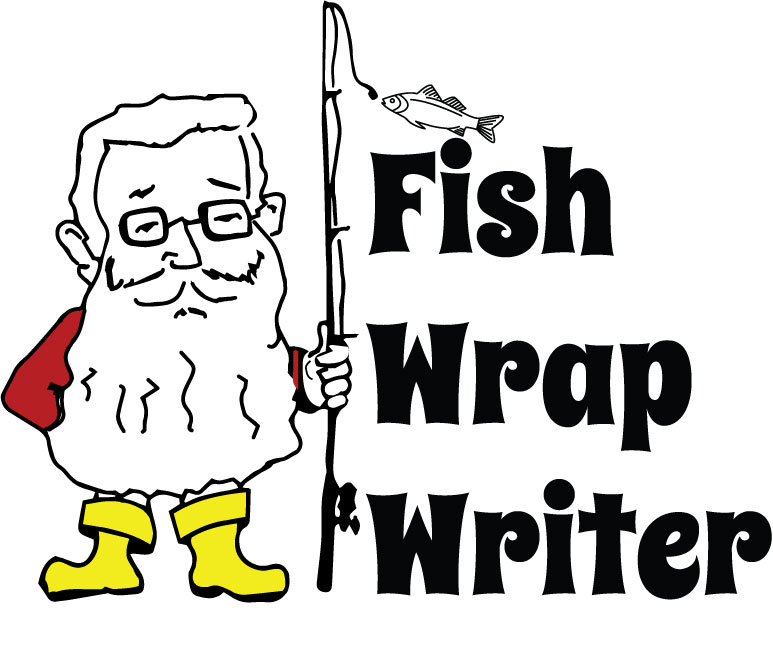
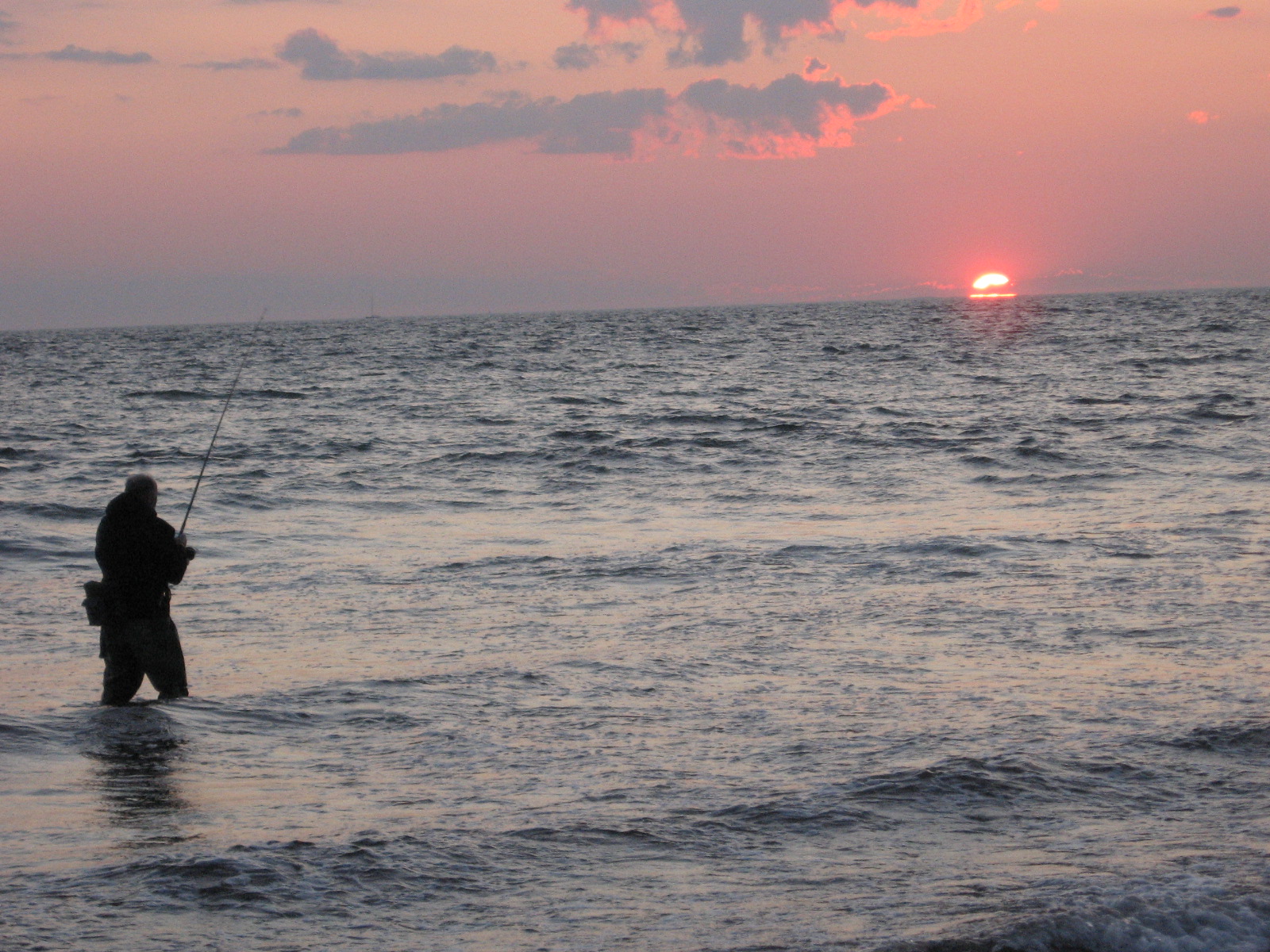
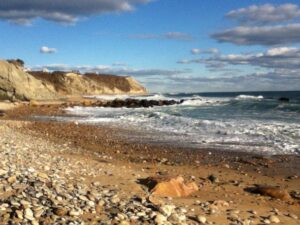
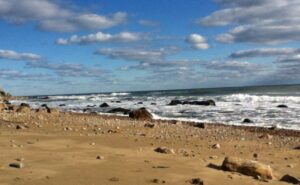
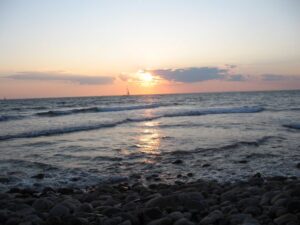

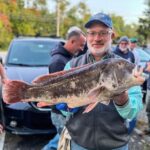


Thanks for the ink. Jenks and Dennis Z. we’re quite the combo. We need to share a tide soon.
Indeed they are two sides of a coin. And yes, Spring fishing should be good and I’ll be happy to get back on the water with you.